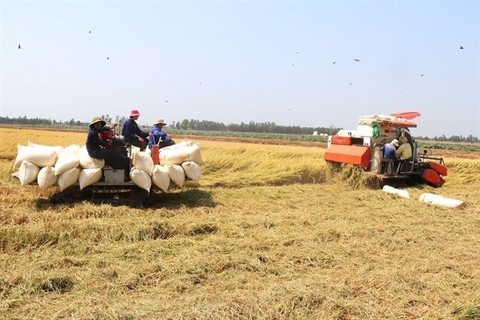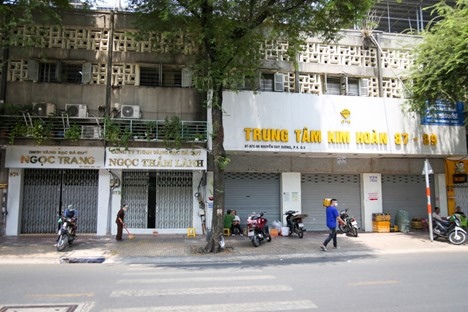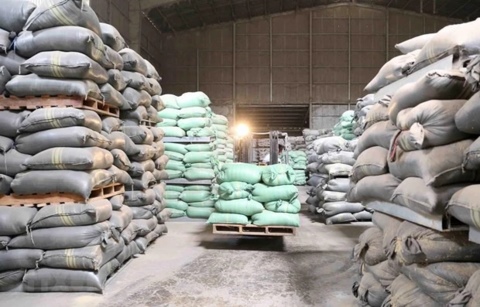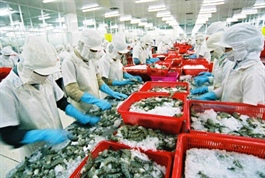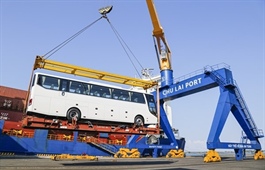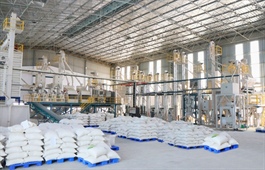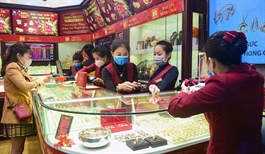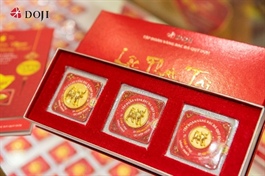Viet Nam imposes anti-dumping tax on sugar imported from Thailand
Viet Nam imposes anti-dumping tax on sugar imported from Thailand
The Ministry of Trade and Industry has decided to levy a temporary anti-dumping tax of 44.88 per cent on unrefined sugar and 33.88 per cent on refined sugar imported from Thailand.

The taxation on sugar cane imported from Thailand is an opportunity to revive the domestic sugar industry. This is also considered an important decision to help the sugar industry overcome a very difficult period.
This tax rate will be regularly reviewed to ensure a fair, competitive environment if there is a strong shift from importing refined and white sugar to importing raw sugar in order to avoid anti-dumping tax and anti-subsidy at a higher level.
The decision comes after the Ministry of Trade in September initiated an anti-dumping and anti-subsidy investigation for imported sugar from Thailand on the basis of the documents requested by the Viet Nam Sugar and Sugarcane Association (VSSA) and domestic sugar producers.
It later found that Thai businesses shipped nearly 1.3 million tonnes of subsidised sugar to Viet Nam last year, an increase of 330.4 per cent compared to the previous year.
The sharp increase in import volume caused serious damage to Viet Nam’s sugar industry, forcing plenty of sugar processing mills to halt operations and lay off workers.
According to the ministry, as many as 3,300 workers have lost their jobs and more than 93,000 farmers have been affected by the inefficient operation of sugar mills.
The ATIGA (ASEAN Free Area Agreement), took effect from January 1, 2020, reducing the import tax on sugarcane from 80 per cent to 5 per cent on unprocessed sugar and white sugar. This has led to a massive import of sugar. According to the (VSSA, the total amount of sugar cane imported into Viet Nam has increased rapidly, reaching approximately 1.5 million tonnes, double the amount of sugar produced domestically. Of the volume, a considerable amount is imported from Thailand.
Nguyen Van Loc, the association's acting general secretary , said that the drought affected sugarcane productivity, in June the Thai Government had agreed to provide US$317 million to the Thai sugar industry. This funding is equivalent to about THB1,419 per tonne of sugarcane, helping the Thai sugarcane price remain at a very competitive level. Thai sugar cane is massively imported into Viet Nam, causing many difficulties for domestic sugar companies as well as for sugarcane farmers across the country. Previously, the production capacity of domestic sugar mills was about 1.5-1.6 million tonnes, so far it has fallen to half.
Loc adds that before ATIGA integration, Viet Nam had 41 sugar mills in the North, 300,000 ha of sugarcane and 300,000 farmers, but currently it has only 25 sugar mills in operation. However, many of these sugar mills are also in a state of "clinical death".
Timely decision
Loc further said that sugar mills under the VSSA were very happy with the decision to impose tax on sugarcane imported from Thailand by the Ministry of Industry and Trade.
He said that: “Many domestic sugar mills have actively invested in technology, built chains with farmers to produce competitive products. However, subsidy and dumping fraud have been found after the investigation, which is the reason why sugar enterprises are struggling.”
Loc believed that the taxation is reasonable because now the domestic sugar price was approximately similar to the Thai sugar price. By doing so, Viet Nam's sugar industry is competitive with sugar imported from Thailand and other countries.
This decision will help create a fair environment and playing field, as well as stop the industry's slump. More importantly, it will help create sustainable livelihoods for sugarcane farmers in remote and border areas.
Taking advantage of this opportunity, sugar companies are also recommended to rebuild links with farmers, re-establishing quality raw material areas after a long hiatus due to a prolonged period of capacity reduction. However, the restoration of the sugarcane growing area cannot be completed in a short period of time. It will take at least three years, so businesses need to assist farmers in improving their lives to become more engaged with sugar cane.
Phan Van Chinh, an expert of the Ministry of Industry and Trade, recommended that sugar businesses need to make better use of byproducts of the sugarcane industry (cane tops, bagasse, filter mud and molasses).


